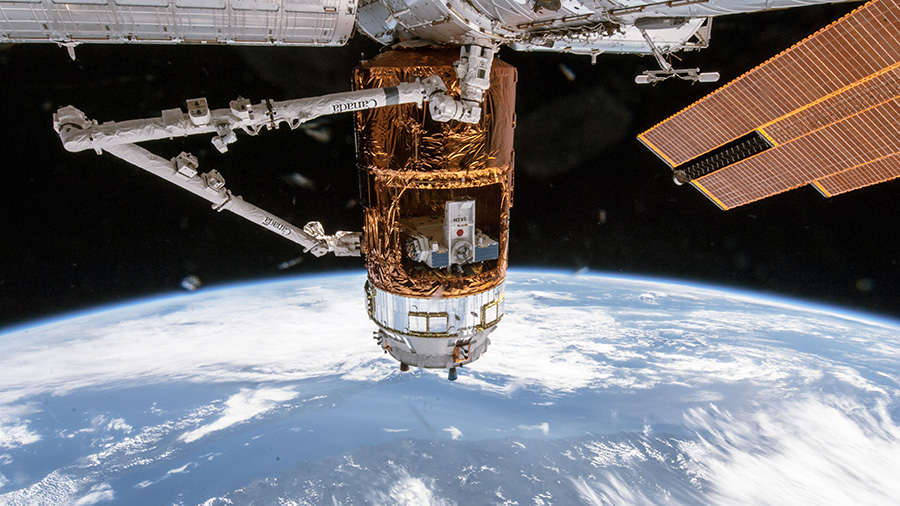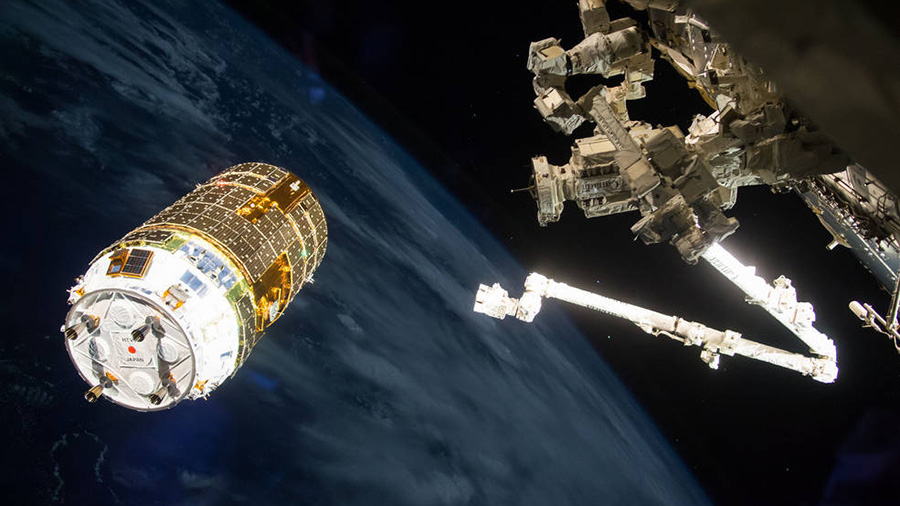Hurricane Florence Viewed from the Space Station
{authorlink}
NASA Image of the Day
Powered by WPeMatico
{authorlink}
NASA Image of the Day
Powered by WPeMatico

As a result of adverse weather conditions, the Japan Aerospace Exploration Agency (JAXA) has postponed the scheduled launch of a Japanese cargo spacecraft from the Tanegashima Space Center in southern Japan. The unpiloted H-II Transfer Vehicle-7 (HTV-7) is loaded with more than five tons of supplies, water, spare parts and experiments for the crew aboard the International Space Station.
A new launch date has not yet been determined.
Get breaking news, images and features from the station on Instagram at: @iss and on Twitter @Space_Station and @ISS_Research.
Get The Details…
Mark Garcia
{authorlink}
ISS
Powered by WPeMatico

Japan’s seventh cargo mission (HTV-7) to the International Space Station is in the final stages of preparation for launch on Monday at 7:32 p.m. EDT. Mission controllers are monitoring the weather at the Tanegashima Space Center launch site while the Expedition 56 crew is preparing for its arrival early Friday.
JAXA’s (Japan Aerospace Exploration Agency) HTV-7 is delivering a wide variety of science gear to support new research aboard the orbital lab. The new facilities will enable astronauts to observe physical processes at high temperatures, protein crystal growth and genetic alterations as well as a variety of other important space phenomena.
HTV-7, also known as Kounotori, is also carrying six new lithium-ion batteries that robotics controllers will remove then install on the station’s port 4 truss structure. Astronauts Alexander Gerst, Drew Feustel and Ricky Arnold will complete the battery maintenance work over two spacewalks set for Sept. 20 and 26.
Feustel will lead the effort to capture Kounotori when he commands the Canadarm2 robotic arm to reach out and grapple it Friday at 7:40 a.m. He trained today with Flight Engineer Serena Auñón-Chancellor, who will back him up in the Cupola, practicing capture techniques on a computer.
All six crew members got together at the end of the day for more eye checks. The sextet from the U.S., Russia and Germany used an ultrasound device, with assistance from doctors on the ground, and scanned each other’s eyes.
Get The Details…
Mark Garcia
{authorlink}
ISS
Powered by WPeMatico
{authorlink}
NASA Breaking News
Powered by WPeMatico
{authorlink}
NASA Image of the Day
Powered by WPeMatico